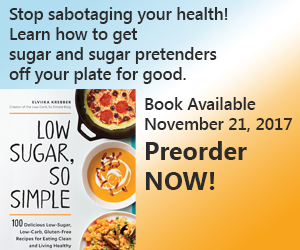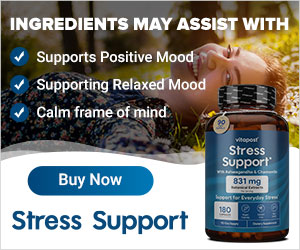Does Propranolol help for anxiety? Now that’s a natural question, considering the vast variety of treatments and medications that were not originally meant to treat anxiety but have, nevertheless, proved to be beneficial as anxiety treatment. Anxiety, as we all know, can be a troublesome condition with several painful physiological and psychological effects. Different medications and treatments work in different ways to control all or some of the symptoms of anxiety. Whether, and to what extent beta blockers like Propranolol can help address the problem of anxiety is still a matter of debate. The use of Propranolol as an anxiety reliever has been accepted by medical practitioners and even the U.S. Food and Drug Administration (FDA), which approved Inderal in 1967. The FDA has also approved a long-acting form of Propranolol for a single dose a day. But before you decide to turn to Propranolol as an anxiety reliever, you need to understand what a beta blocker really is and how it works. It’s also important to understand its side effects, if any, and their seriousness.
Is this the best drug-free way to get rid of anxiety and panic attacks permanently?
Defining Beta Blockers
All drugs have their unique compositions and work at different levels on the body. Anxiety can also be treated or tackled in different ways, depending on various facts, such as the triggers and the symptoms involved, the side effects of certain medications, and how they affect your body, etc. Beta blockers constitute one kind of treatment being used by many people around the world to treat their anxiety symptoms. This class of drugs works by keeping the adrenergic receptors in your body in check. What it does is prevent the receptors, which control cardiac action, heart rhythm, angina treatment and blood pressure, from getting stimulated.
When to Use Propranolol
Propranolol is a beta blocker used mainly in curing a person of the physical symptoms of anxiety. These symptoms include increased heartbeat, uncontrolled trembling or shaking and even blushing. In some cases, it is also seen to give relief from sweating, tension in the muscles and fear of speaking in front of people. Like most other anxiety alleviating drugs, it offers only temporary relief. Safe in most cases and not addictive in any way, the good thing about Propranolol is that it’s not habit-forming and can be easily kicked away.
When Not to Use Propranolol
Since it helps control heartbeat and also contributes to lowering of blood pressure, Propranolol use is not advisable for people suffering from heart problems or low blood pressure. Diabetic patients or those with complaints of any kind of respiratory or lung problem, such as asthma, are also not advised to use Propranolol, whose most popular and recognized brand is Inderal. This beta blocker is seen to interfere with a glaucoma screening test and to cause blurry vision, and is hence prohibited for use by those with vision problems. Those undergoing a surgery should also stop the drug a day before the operation. It also is not recommended for use by kidney patients.
Pregnancy and breastfeeding are other conditions under which Propranolol shouldn’t be taken, except if prescribed by a doctor. It’s believed that Propranolol taken during pregnancy can affect the development of the baby. So you shouldn’t really try to experiment with this drug in case of mild anxiety problems, but should use it only in extreme cases of anxiety, and even then only after consulting your doctor.
Side Effects of Propranolol
Though it doesn’t usually cause side effects, Propranolol can cause some discomfort if taken too frequently or in larger doses. The side effects in such cases may include short-term memory loss, insomnia, numbness or coldness in hands and feet, confusion, diarrhea, lethargy or extremely slow pulse. These usually occur in the initial stages of use and tend to go away after a few uses. However, if these symptoms persist, it’s best to consult your doctor without delay.
In some cases, Propranolol is also seen to cause slightly more severe side effects, such as allergic reactions, leading to trouble in breathing or irregular heartbeat, swelling of the throat or face, skin itching or lumps, skin peeling or blisters on the skin. If faced with any of these side effects, consult your doctor immediately. Your doctor may advise you to stop the medication or take some anti-allergics to keep the side effects in check.
Though it happens rarely, Propranolol can also have extremely serious side effects in some patients. There has been a reported case of a boy who took the drug for bipolar and panic disorders ending up with manic symptoms after taking a single 10 mg dose of Propranolol. There are also news about beta blockers having caused 800,000 deaths worldwide. Clearly, then, it’s not a drug to be played around with, and needs to be used with a lot of care.
Precautions with Use
Even if you’re not in any of the categories excluded from its use, Propranolol needs certain precautions to be followed stringently. You need to be careful about the dosage and frequency of use. In most cases, the dosage prescribed ranges from 20 to 40 mg, as needed or as advised by your doctor, an hour before you’re likely to face an anxiety-causing situation. It may be safely combined with Alprazolam or Imipramine. However, it’s not good to use with certain other drugs such as Thioridazine, Albuterol, Epinephrine, Bupropion, Clonidine, Fingolimod and Verapamil.
Alcohol intake while using Propranolol is also seen to have detrimental effects on health. It can lower blood pressure, and also cause dizziness or lightheadedness, especially in the initial stages. Multivitamins, if taken simultaneously with Propranolol, tend to reduce the impact of the drug; hence a two-hour gap is advised between the Propranolol and the multivitamins.
If you’re taking this drug every day, it’s generally not advisable to stop it abruptly. The effects of doing so can be quite serious; ceasing to take the drug abruptly can even cause cardiac arrest. Doctors usually wean users away from the drug gradually, in a phased manner.
Fed up taking drugs for anxiety? Then check out this PROVEN drug-free method!
Conclusion
Though largely safe as a recognized anxiety reliever, propranolol can react adversely in some cases, leading to even dangerous effects. Even it is a popular prescription as well as over-the-counter drug that’s easily available in most countries, it is always best and safest to treat the root cause of anxiety rather than take drugs. Holistic, drug-free methods can do wonders and cure the symptoms of anxiety and panic attacks permanently. This is something the drugs cannot do as they provide only a temporary relief at its best.








You must be logged in to post a comment.